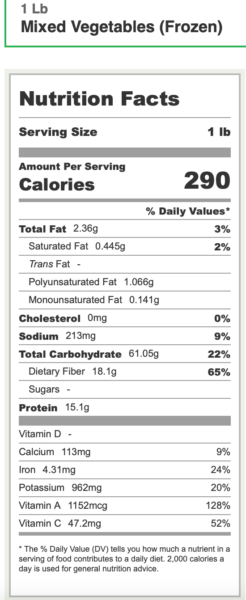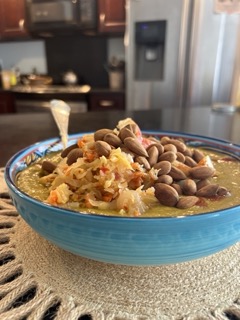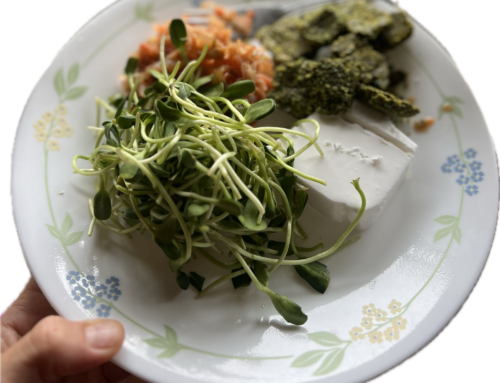In this post I outline generic foods/food groups and help you to understand the caloric impact of some everyday consumption patterns. Once you gain basic sense of this knowledge it’ll help you navigate what to eat (based on your health goals). Remember, food doesn’t contain moral value but Doritos vs. Grapes is not a neutral comparison. 
I suggest these foods make up the majority of what we eat:
Calories in 1 pound of,
Non starchy vegetables: 290
Fruit: 115
Potatoes: 349
Whole Grains: 502 (brown rice) = 4 cups cooked

This is a pureed zucchini soup with added cabbage salad, sauerkraut and a handful of almonds.
Legumes, Beans, Tofu etc = 6-7 cups of cooked beans = 1,588 *to consume more than 2 cups of beans per sitting would be considered a noble pursuit.
These foods I suggest we moderate, especially in instances of weight loss:
Calories in 1 pound of,
Nuts: 2,752, ex: 1/4 cup of nuts = 160 cal
Seeds: 2,535, ex: 1/4 cup of seeds = 186
Oil: 4,002, ex: 1/4 cup oil = 482
Avocado: 681 (1 whole medium size)
These are foods I suggest we all avoid for both health & wellness:
Calories in 1 pound of junk food,
Chips: 2,428 *a standard bag of chips is 8 oz. which is 1,241 so 16 oz would be 2432
Chocolate Candy: 2,427, a 100 gram bar of milk chocolate is 538
Soda: 185
Why Calories cannot be treated equally:
Different foods go through different biochemical pathways, some of which are inefficient and cause energy (calories) to be lost as heat ( 1 ). Even more important is the fact that different foods and
macronutrients have a major effect on the hormones and brain centers that control hunger and eating behavior.
So basically – there is nothing similar about 100 calories of broccoli and 100 calories of Funyuns. Calories tell you NOTHING about how nutritious something is, it’s unit of energy (and processed junk food isn’t quality energy). Rather than focus on comparing calories, narrow your food choices down to whole ingredients and then decipher from there how much or how little to eat based on your goals. Ex. someone needing to gain weight would use more nuts, seeds and avocado than someone trying to lose or maintain their weight – while still choosing health promoting foods.
Why any of this is therapeutically important:
Most people come to therapy to address their levels of anxiety, fear, depression, bereavement and to overcome varying traumatic experiences. Some just come for a sounding board – that’s enough. Our gut is connected to our endocrine system – Actually, the whole body is connected by one pathway or another which is enveloped by our largest organ – the skin – which makes hormones and releases them into the blood stream. The large intestine is actually an endocrine organ and secrets over 30 gut hormones. The hypothalamus (base of the brain) links the endocrine and the nervous system together.
What we eat matters. Our bodies are also incredibly intelligent so they can rebound from some pretty offensive behavior. Needless to say, getting well starts at our well – the base of how we feed ourselves. When we’re fed, grounded, have stellar digestion – we think well, clearly and feel more motivated. Eating well, consciously, lovingly supports the minds creativity and resilience so we can get better.
I hope this offered some insight and you find it easier to apply in your own kitchen.
Xo Katie





